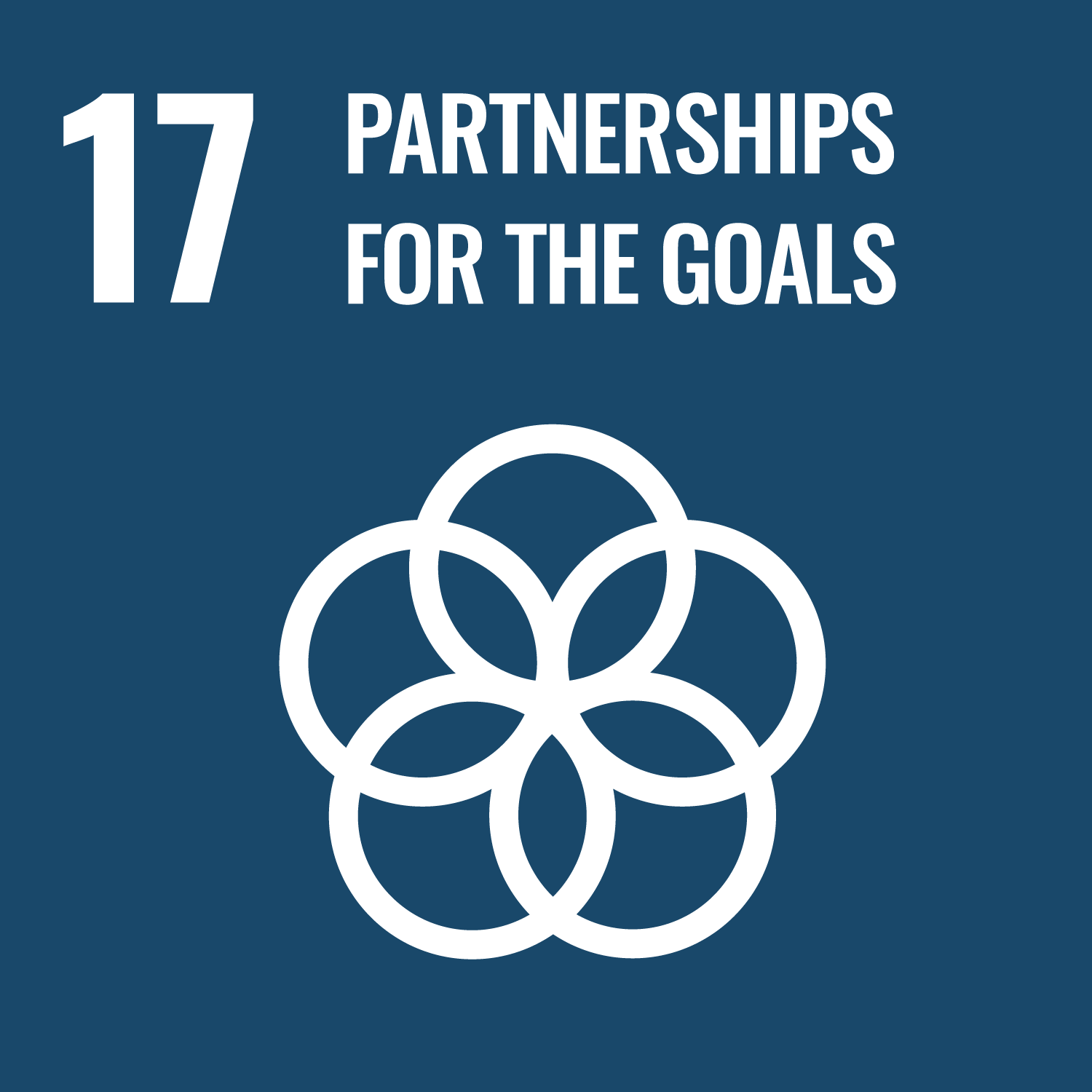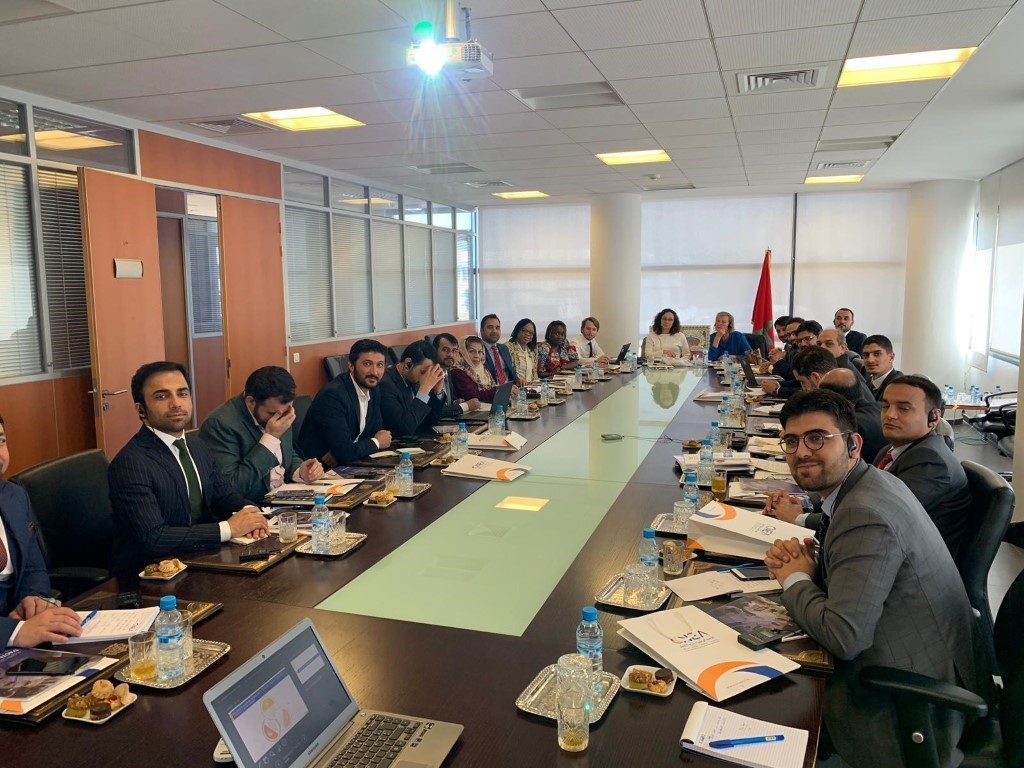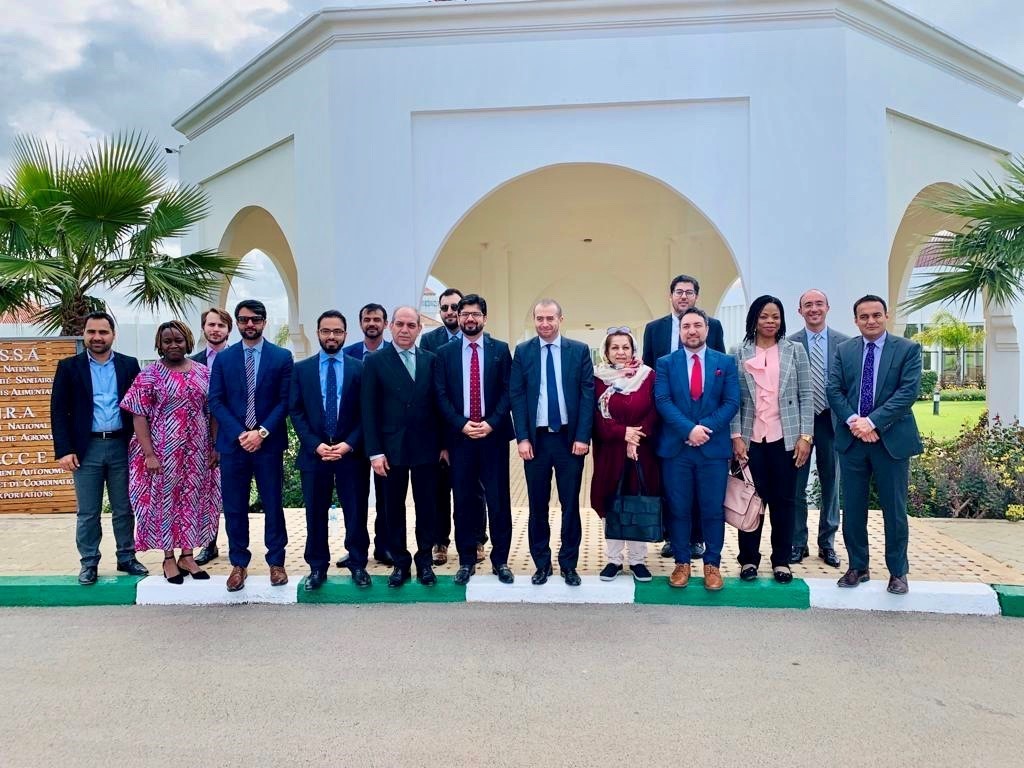Governance Structures for Business Environment Reforms in Afghanistan: Knowledge Exchange with Morocco
Helping Afghanistan to strengthen its capacity to design an investment climate reform program supported by reform strategies and road maps
Challenges
Afghanistan faces significant development challenges, as poverty levels remain high. While fostering growth led by the private sector is essential to addressing these challenges, the formal private sector is extremely limited. Continuing conflict has caused a sharp contraction in private sector credit, firm registration and private investment.
The Government of Afghanistan and the World Bank Group (WBG) have recognized that regulatory reforms are needed to establish a conducive business environment, restore private sector confidence and create jobs. To address its development and poverty challenges, the country must find new sources of private sector growth that could help to reduce its dependency on international aid, as well as the economy’s reliance on a volatile agriculture sector. Addressing private sector constraints will be key to achieving sustained growth in the long term.
To support job creation and promote a more enabling regulatory environment for businesses, the Government must strengthen the institutional structures dedicated to the design, coordination, implementation and monitoring of its investment climate reform program.
Towards a Solution
To help address the country’s development challenges, the Government of Afghanistan has undertaken several interventions to improve the business environment and support private sector-led growth. In April?2017, the Inter-Ministerial Committee on Private Sector Development (PRISEC) was established to lead business environment reforms. PRISEC is co-chaired by the Ministry of Commerce and Industry, the Office of the Chief Executive and the WBG. The Committee includes key public and private stakeholders.
To strengthen the institutional capacity of PRISEC, a knowledge exchange was organized with Morocco, a country that has implemented a series of reforms and continued to improve its ranking in the World Bank’s Doing Business publication1. The exchange aimed to strengthen institutional capacity to design, coordinate, implement and monitor a successful business environment reform program that would foster private sector development in Afghanistan.
During the exchange, which took place from July?2018 to May?2019, the Afghan delegation met with key representatives from Moroccan institutions that are leading the effort to improve the country’s business and investment climate. The Commission Nationale de l’Environnement des Affaires [National Committee for Business Environment] (CNEA) has been successful in implementing numerous business reforms since its creation in 2013. These reforms have improved the position of Morocco in the World Bank’s Doing Business publication. CNEA facilitated a learning session on designing, implementing and monitoring an investment climate reform program by developing action plans and effective reform strategies. They also discussed the role of academia, inclusive approaches to stakeholder and regional engagements, and techniques and approaches for establishing sector-specific frameworks for dialogue.
The Afghan delegation also met with the Secretary General of the Government of Morocco to discuss reforms to improve the regulatory environment for entrepreneurs and the process for devising laws. The Department of Commerce and Customs gave presentations and led discussions on the Moroccan export process, the PortNet digital portal and the new process for export licences. The Municipality of Casablanca shared information on the recent reforms to streamline the construction permit system. The Centre Régional d’Investissement de Casablanca [Regional Centre for Investment of Casablanca] (CRI) also gave presentations on its one-stop-shop approach to company registration and discussed its initiatives to improve regional competitiveness. CRI has also developed resources to support investors, such as an investor guidebook, sector-specific booklets and a multilingual website. Representatives from the Moroccan Economic Development Zones (MEDZ) Agribusiness Park in Meknes discussed its institutional set-up, financing and its role in establishing industrial, agricultural, offshore and tourist parks across 12?territories in Morocco.
The Confédération Générale des Entreprises du Maroc [General Confederation of Enterprises in Morocco] (CGEM), which is the country’s leading business association, facilitated a learning session on innovative approaches to effective public-private dialogue. Representatives discussed how CGEM secured eight seats in Parliament, which enabled it to strategically lobby for reforms and influence policymaking. They also emphasized the role and participation of women in corporate and state-owned enterprise (SOE) boards. In addition, they shared information about how CGEM collects feedback and contributes to private sector capacity-building; how it prioritizes reforms in light of the development road map promoted in political campaign pledges; and how it engages with the international business community, multinational corporations, small- and medium-sized enterprises and trade unions.
The Afghan delegation gained new knowledge on how to design and implement a process for business reforms. Delegates benefited from candid conversations with CNEA about the institutional and political challenges Morocco encountered during its reform process. They were also introduced to the efficiencies and transparency of the PortNet e-platform and paperless processes for registering businesses and issuing licences and permits. Hopefully, the e-governance law to be passed in Afghanistan will help to expedite the digitization process. Morocco also provided examples of good practices in supporting high-level participation for women in business through leadership roles and their inclusion in both corporate and SOE boards.
At the end of the study visit, a half-day session allowed the Afghan delegation and the WBG teams to reflect on the experiences and lessons learned from the knowledge exchange, which were as follows:
- A clear understanding of a well-defined reform process.
- Improved approaches to defining the roles and responsibilities of institutions leading a reform process.
- The value of communicating government decisions, proposals and reforms using local languages to increase awareness among citizens living in various regions of the country.
- Ways to increase ownership and accountability in the line ministries responsible for various aspects of the reform.
- More inclusive approaches to strengthen public-private dialogue in Afghanistan. The delegation agreed to explore ways to enhance private sector representation in the executive structure and formalize private sector participation in policy discourse.
- Key decisions, actions and next steps. Roles were assigned, and follow-up timelines were set.
Learning from the efficient and multilayer management approach employed by CNEA, PRISEC representatives discussed the possibility of simplifying the existing structure of the coordination and policy units to enhance efficiency and high-level political support.
Following the approval of the Afghanistan Women Chamber of Commerce and Industry by the High Economic Council, the delegation has identified practical proposals to help increase women’s representation and participation on executive boards in Afghanistan.
Due to limited data and baselines, it remains difficult to make decisions and measure investment-related targets in Afghanistan. The delegation therefore nominated two officials to lead the process of creating the business surveys needed to improve data quality and establish more reliable baselines.
A presentation of the knowledge exchange, experiences, good practices and next steps for the PRISEC executive committee was scheduled to take place by the end of the fiscal year?2019. The team representative from the Ministry of Industry and Commerce committed to preparing updates on the proposed e-governance law and circulating them to the rest of the delegation and the WB team following the exchange visit.
Contact Information
Name: Mr Laurent Porte, Title: Program Manager, South-South Facility, Organization: World Bank
Countries involved
Afghanistan, Morocco
Supported By
The World Bank Group
Implementing Entities
Afghanistan: Government of Afghanistan, Executive Committee for Private Sector Development, Ministry of Commerce and Industry. Morocco: National Committee for Business Environment (CNEA); Department of Commerce and Customs, Municipality of Casablanca; Regional Centre for Investment (CRI) of Casablanca; General Confederation of Enterprises in Morocco (CGEM); Moroccan Economic Development Zones.
Project Status
Completed
Project Period
2018 - 2019
URL of the practice
https://www.southsouthfacility.org/index.php/results/governance-structures-business-environment-reforms-afghanistanPrimary SDG
08 - Decent Work and Economic Growth
Secondary SDGs
01 - No Poverty, 17 - Partnerships for the Goals
Similar Solutions










